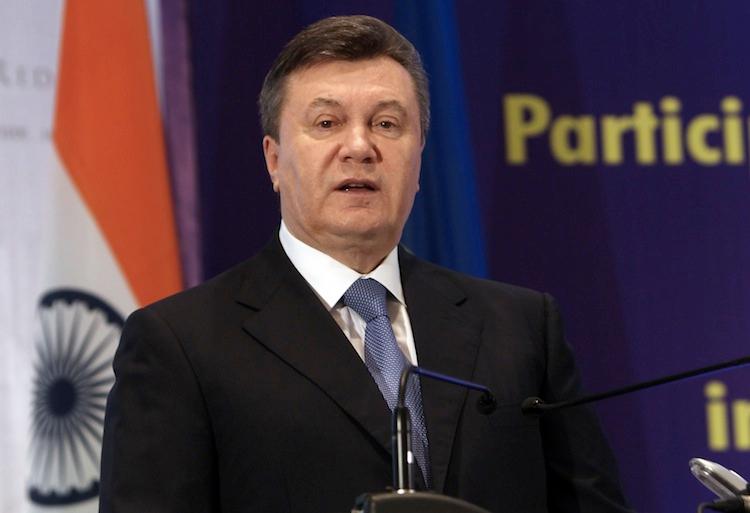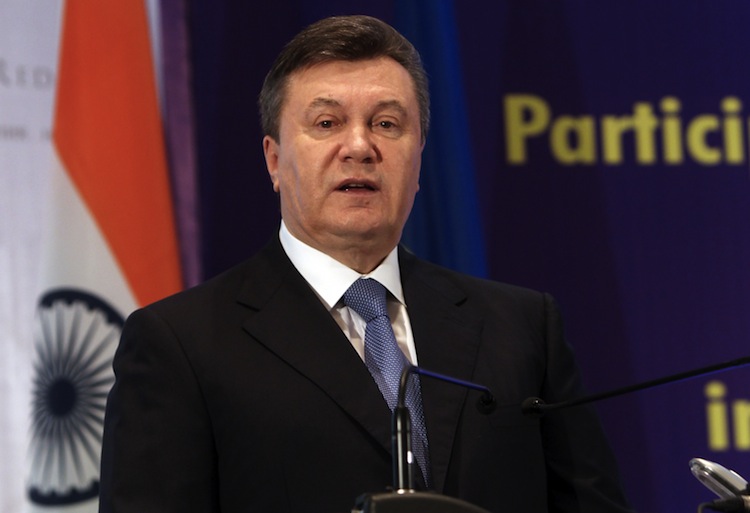KYIV, Ukraine—Ukraine’s prime minister says that the country will be ready this year to sign the much anticipated association agreement with the European Union.
Finalizing the agreement may, however, prove difficult for Ukraine. The agreement was created in 2011 and would establish a free-trade agreement and visa-free travel, but it requires Ukraine to go through—or at least take steps toward—some serious reforms.
Responding to questions posed by The Epoch Times on his Facebook page, Ukrainian Prime Minister Mykola Azarov said that the Ukrainian government plans to push through reforms by setting up an action plan that is headed by the prime minister himself. Azarov said this will raise “the level of problem solving to the highest level in the government.”
“This [action plan] shows our determination and commitment to do what is necessary to sign the agreement this year,” Azarov said.
Even though the agreement was formed in 2011, it wasn’t signed due to EU concerns over selective justice, political repression, as well as the lack of free and fair elections in Ukraine.
The association agreement, which officially establishes the EU’s relationship to a country in an all-encompassing framework, is in some cases used to prepare countries for future membership in the EU.
“Any progress toward political association and economic integration will depend on Ukraine’s performance, notably in relation to respect for common values and the rule of law,” the EU delegation to Ukraine said in a statement on May 16, 2012.
The association agreement needs to receive the support of all EU member states in order to be adopted. But European officials remain concerned over Ukraine’s lack of reform, such as the continued imprisonment of former Prime Minister Yulia Tymoshenko.
According to political analyst Volodymyr Fesenko, head of the Center for Applied Political Studies, European politicians are trying to find a more flexible position toward Ukraine, realizing the possibility of Ukraine turning toward Russia instead.
President Yanukovych made a last minute cancellation last month of a visit to Moscow where he was supposed to talk with Russian officials about the Moscow-backed customs union, which currently includes Russia, Belarus, and Kazakhstan—but which Russia is eager to see Ukraine join.
According to Igor Zhdanov, head of the Ukrainian think tank Open Policy, the change in Yanukovych’s plans came as a result of a phone conversation with President of the European Commission Jose Manuel Barroso. “I think there was this strong message to Yanukovych, that he has a chance to sign an association agreement in 2013—that’s why his visit to Moscow was canceled,” Zhdanov said.
Many European politicians are apprehensive about Ukraine signing on with Russia, said Fesenko, “and so they will give Ukraine a chance to sign this agreement. But for that, Ukraine definitely has to fulfill at least part of the requirements of the European Union, in particular those elements concerning political affairs.”
But according to Steven Pifer, a former U.S. ambassador to Ukraine and now a senior fellow at the Brookings Institution, Ukraine is bluffing its interest in Russia’s offer to join its customs union.
In an opinion piece published in the Financial Times, Pifer said, “Kiev’s expressions of interest in the customs union aim to raise concern in the west that it is somehow ‘losing’ Ukraine to Russia.”
“Mr. Yanukovich is flirting with joining the customs union as part of an effort to persuade the west to ignore Ukraine’s regression on democracy,” he said.
Polls in Ukraine show that the public is more in favor of European integration for Ukraine than turning to Russia and Asia.
A poll published by the Razumkov Centre last month shows that 42.4 percent of voters polled favor the EU as the direction for integration, and 32.1 percent would rather see Ukraine join Russia’s customs union.
More than two-thirds of those questioned hoped that the requirements for reform that the EU has set for Ukraine will be implemented.
According to Fesenko, the fact that the public is behind the idea of signing an agreement with the EU, and that it would benefit President Yanukovych’s economic interests as head of state, makes the EU option attractive.
Despite showing their support for a closer connection to the EU, many citizens do have their doubts about it.






